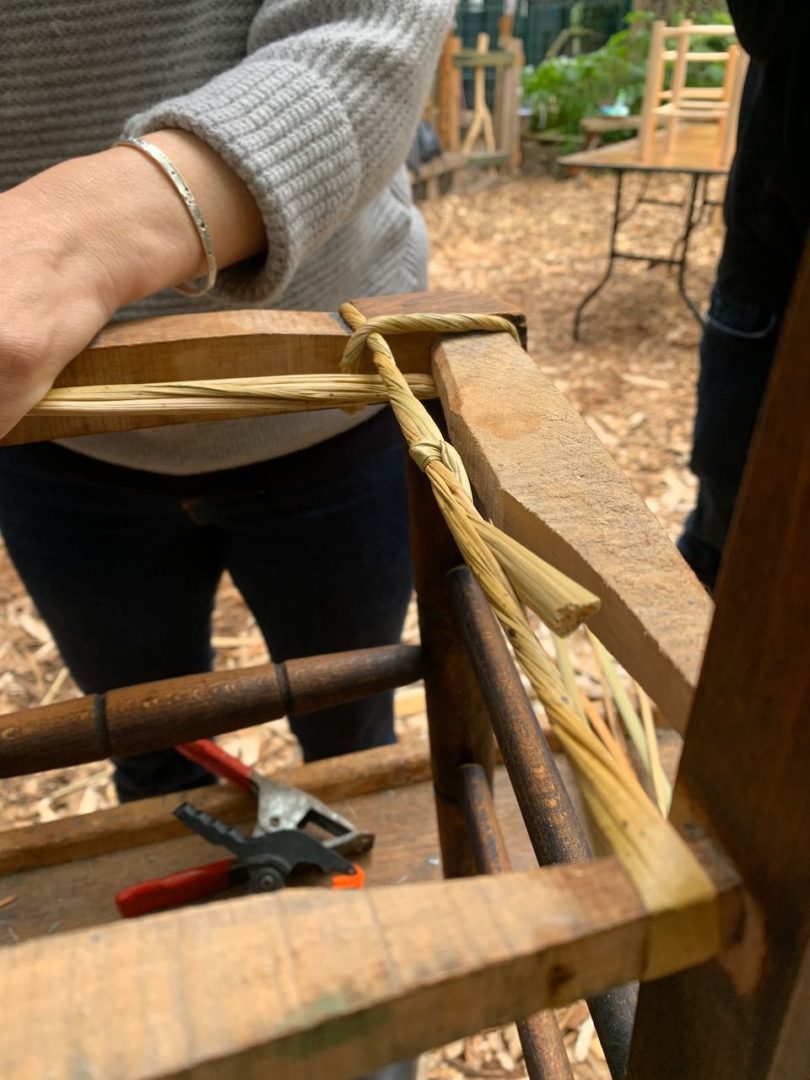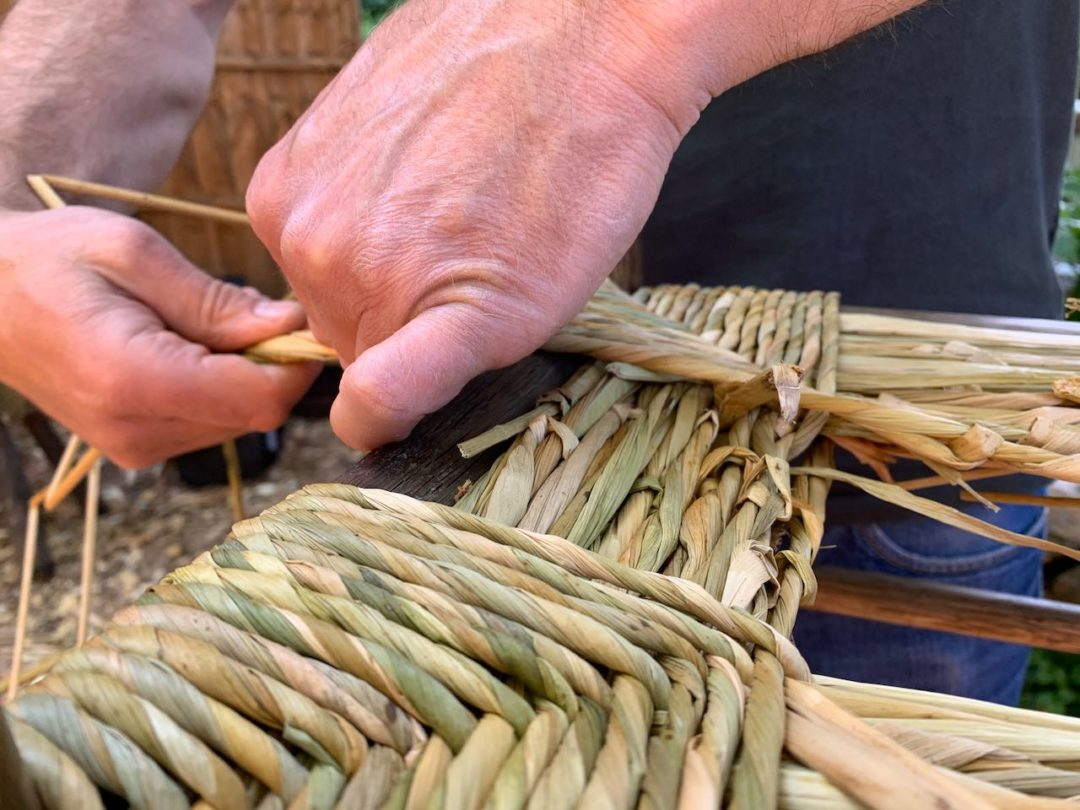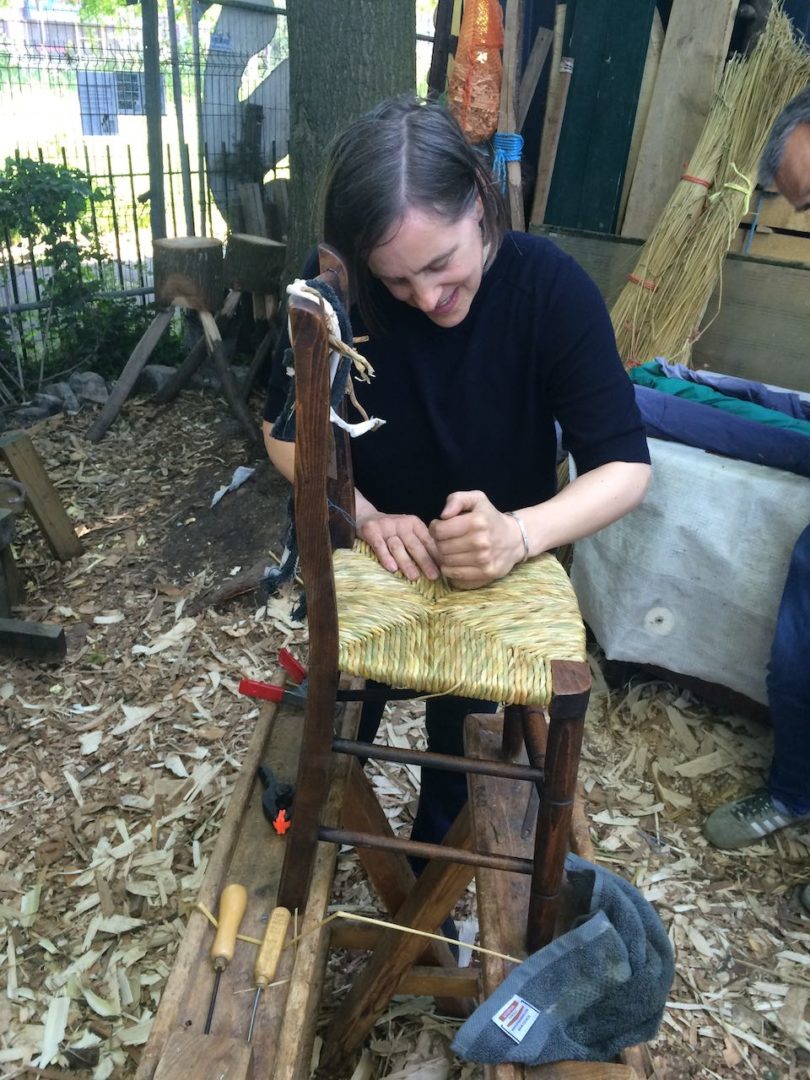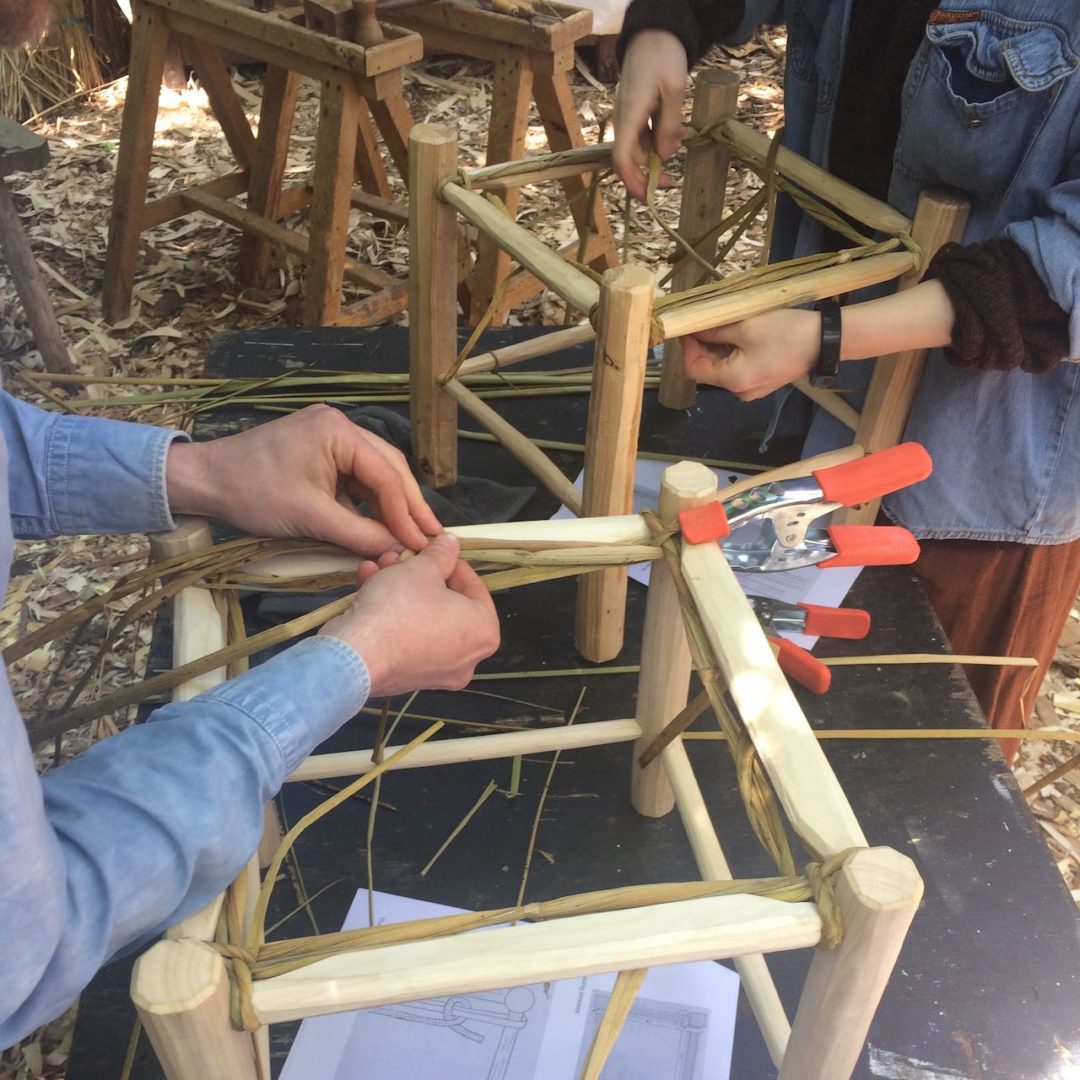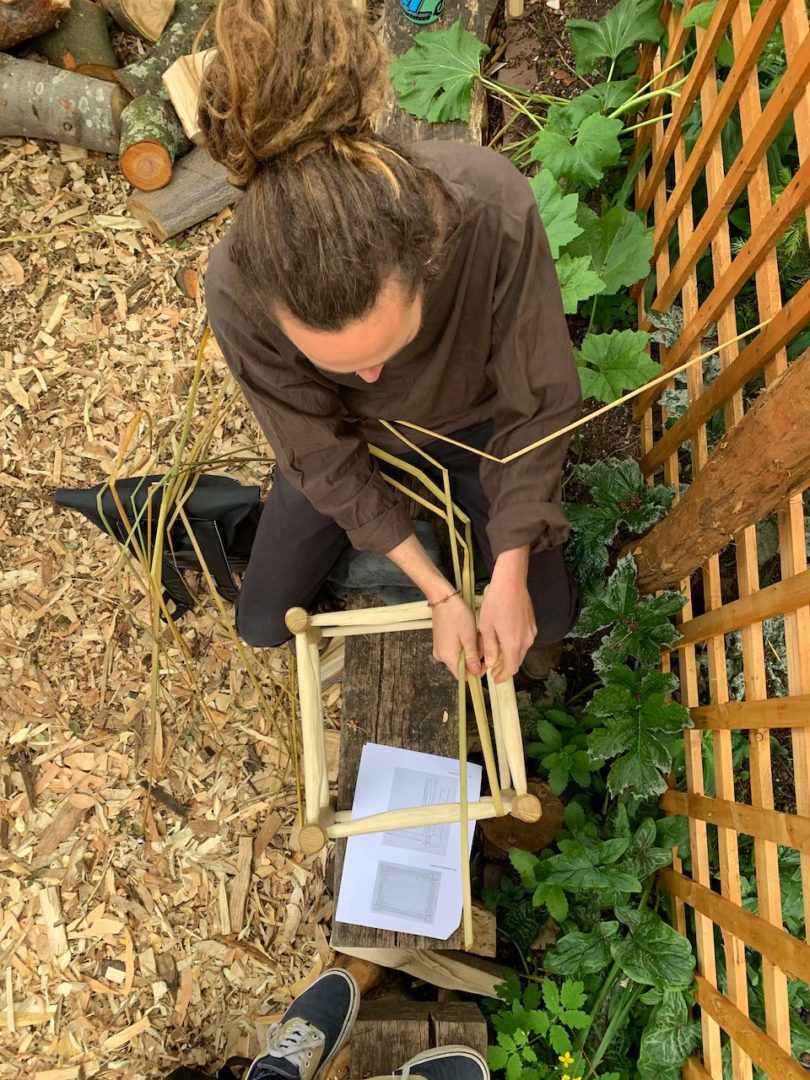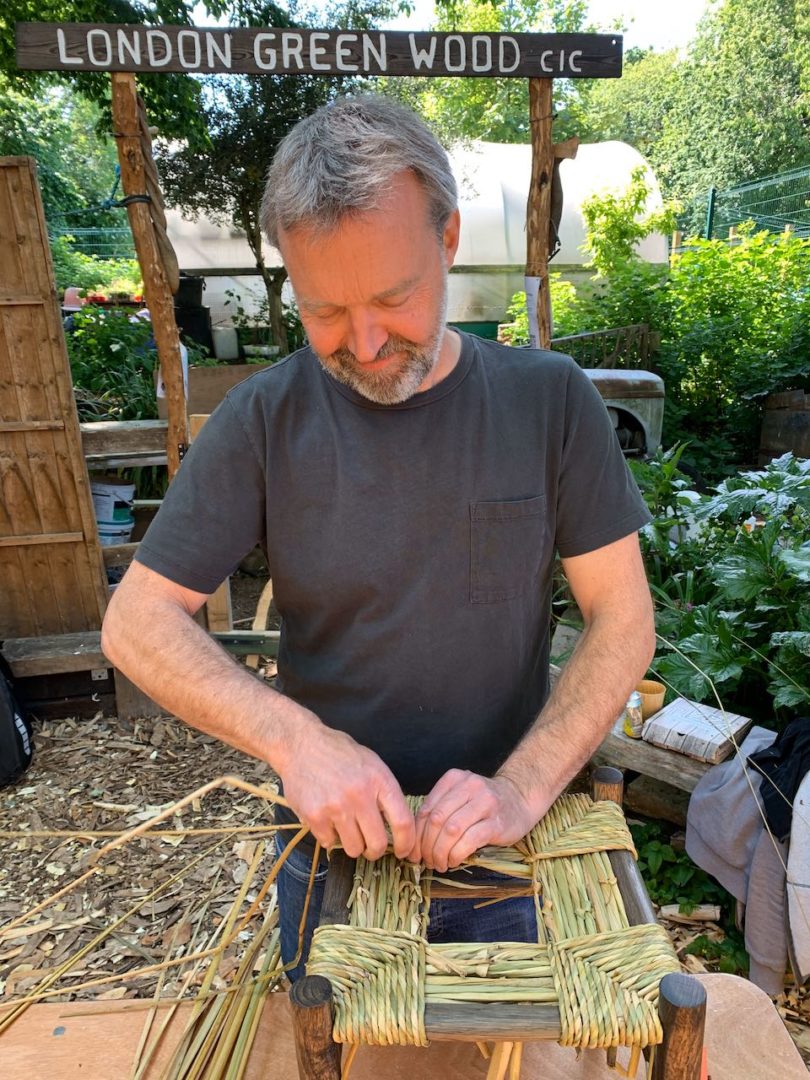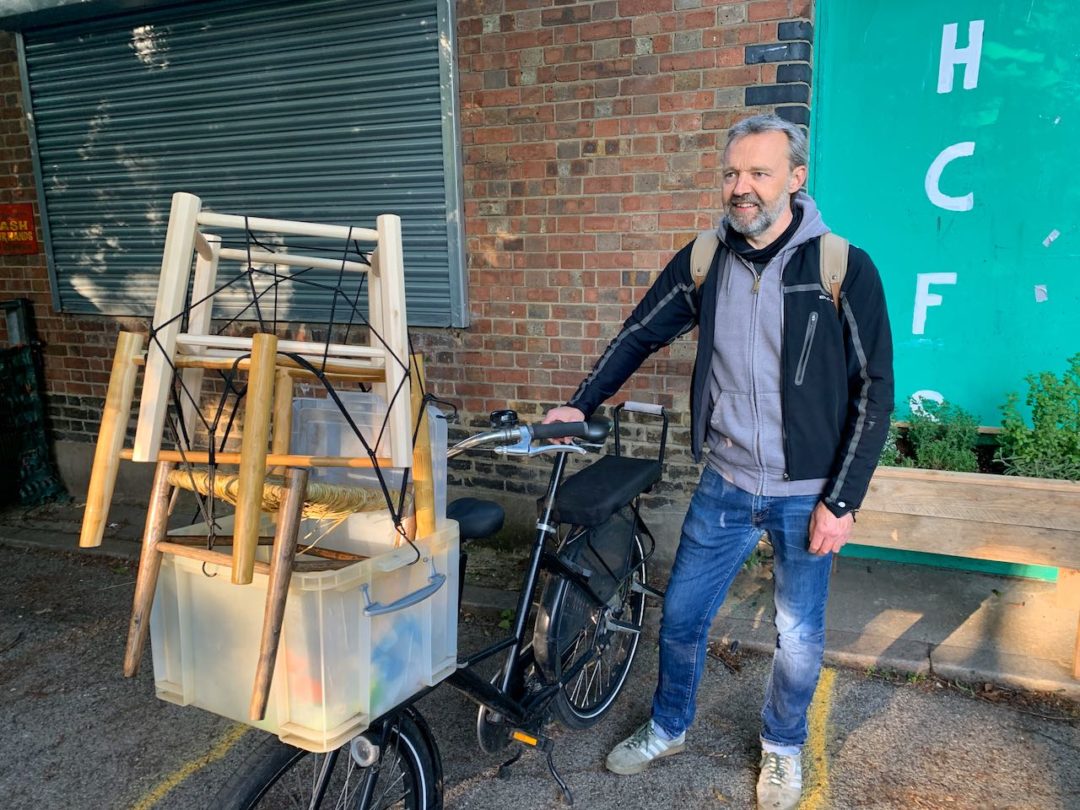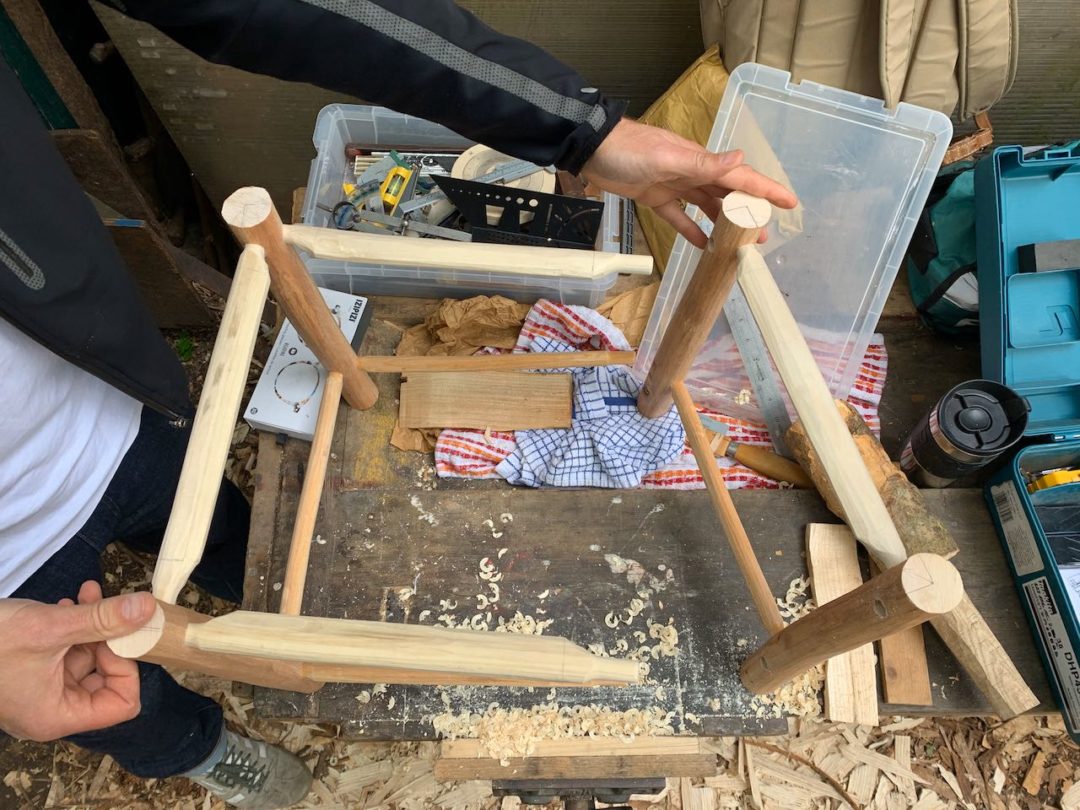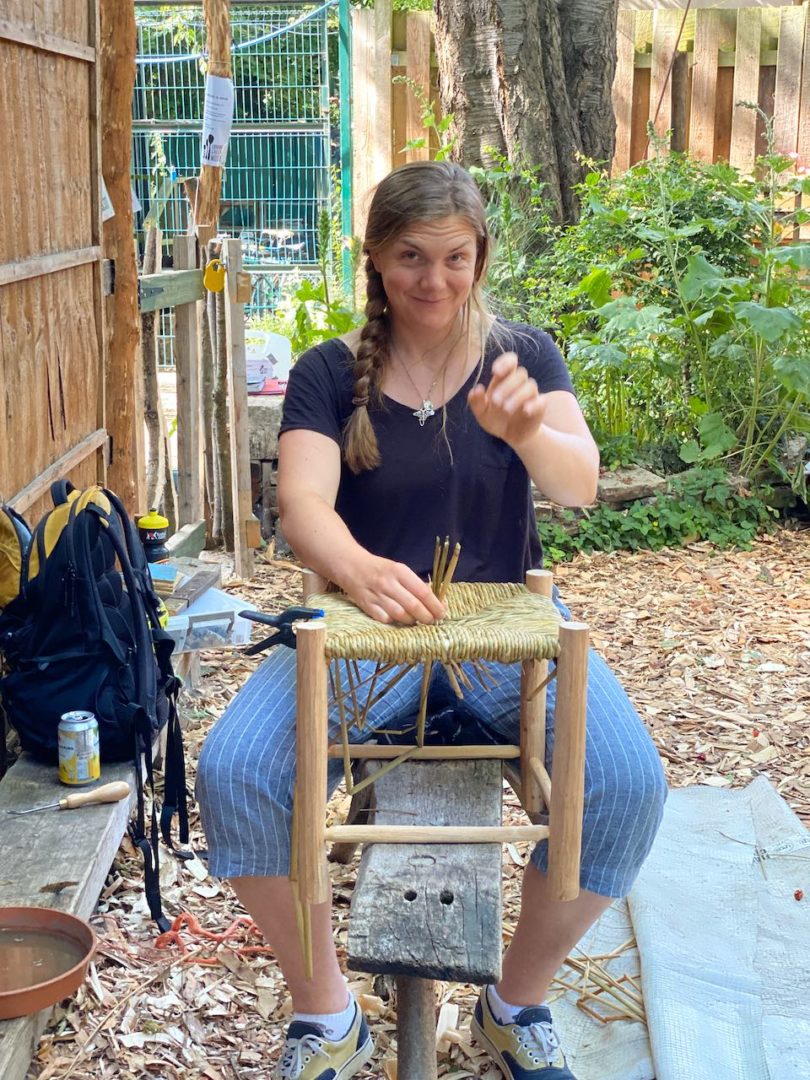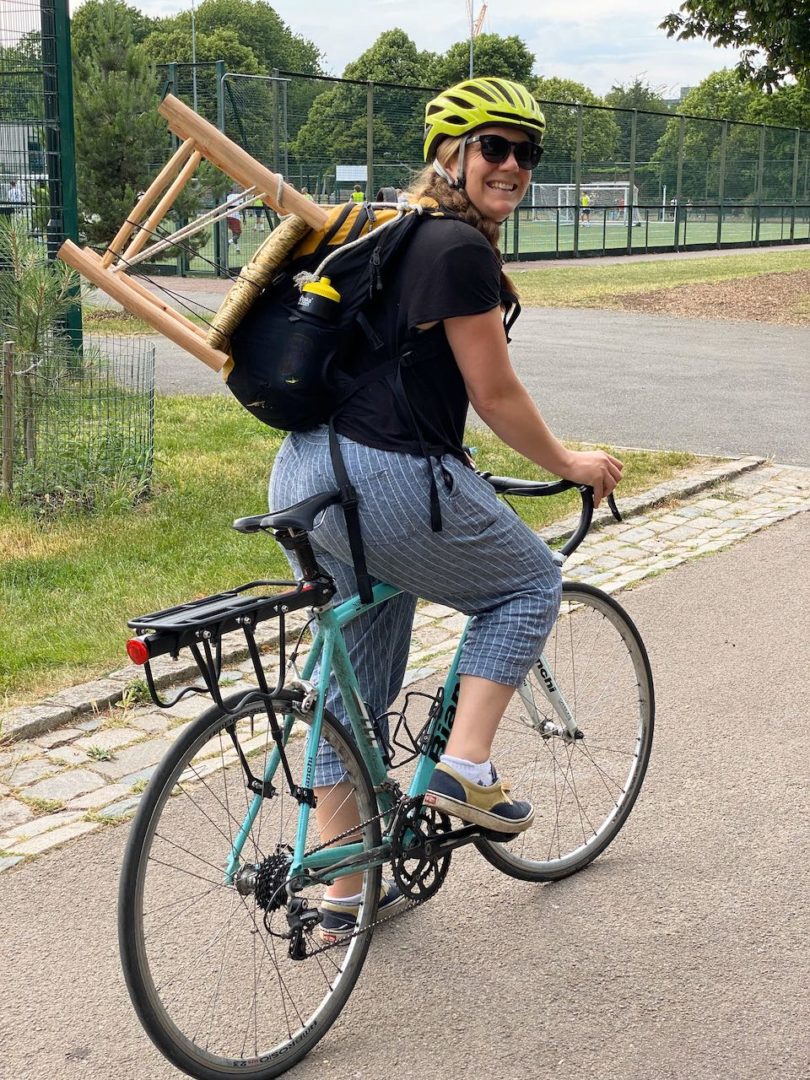
Here’s what happened in 2021






















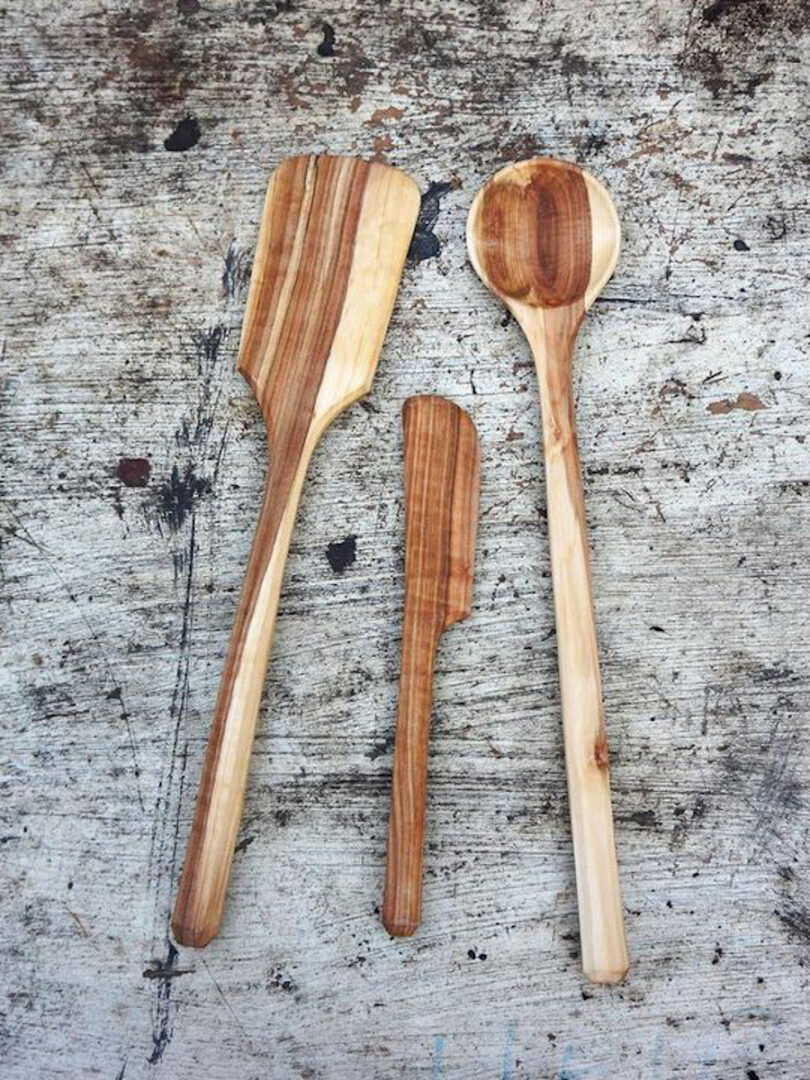
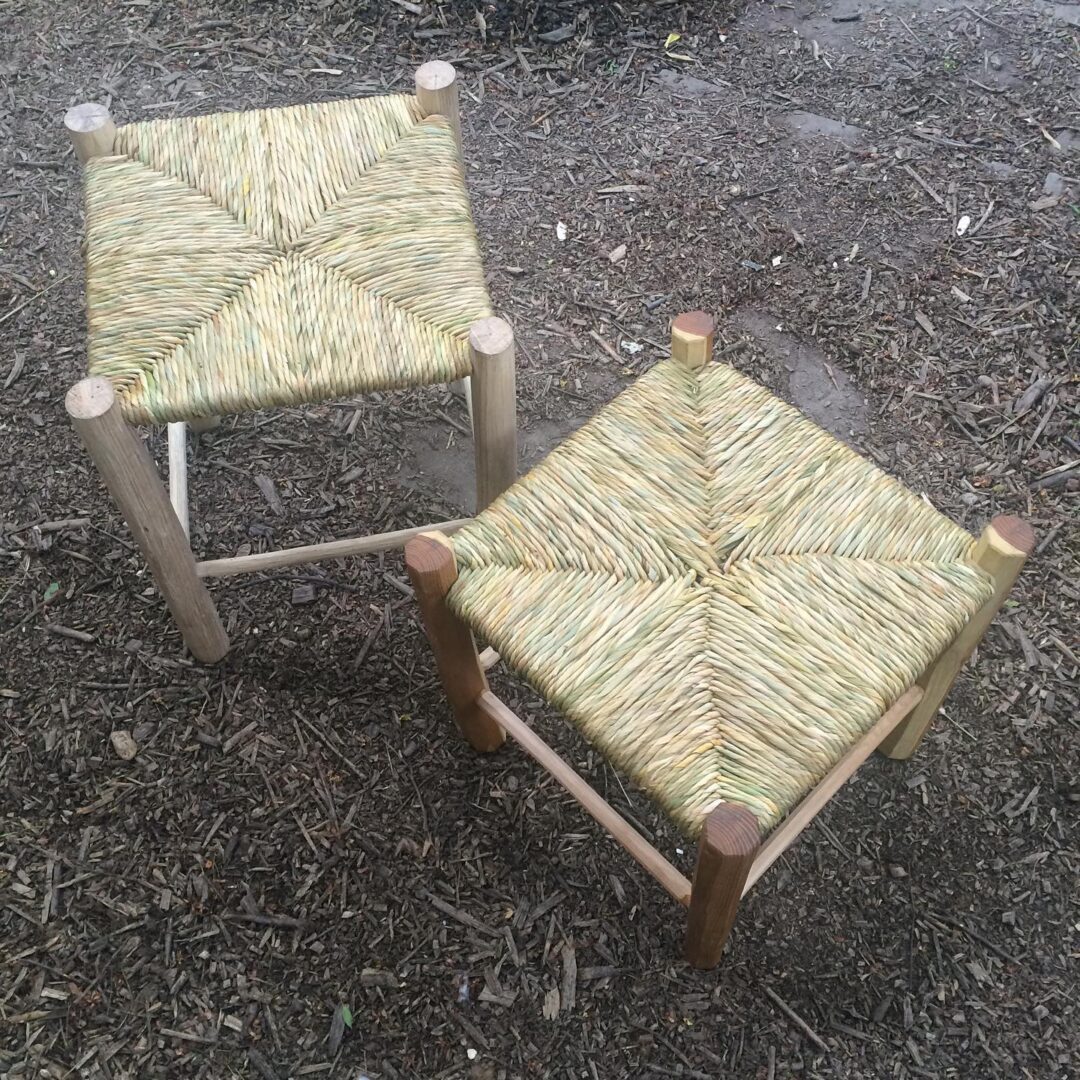
Apart from our courses and occasional funded projects, London Green Wood is run by volunteers. This year we are 10, we were founded as a community organisation at the end of 2011. So far we have taught green woodwork to more than 3000 people.
We started the year, like everyone else, in national lockdown. During this time we gave away wood every week for people to carve at home and taught some online Mindful Whittling courses. In the background, bigger things were happening. A team of 20 LGW volunteers were clearing 17 tonnes of rubbish and rubble from a disused space in Hackney City Farm, bringing it back into community use. We made a new workshop space at the Farm and reopened there after the winter lockdown, courses and our members workshop have been back uninterrupted since April 2021.
Everything has been growing steadily: more courses, more members, more people making things out of green wood. We ran 60% more courses than in 2020 or 2019. Over all our activities we taught green woodwork to over 500 last year. The only thing we didn’t do more of last year was attend community events, they were still pretty low on the ground in the summer. The only public event we went to was Nunhead Open Day. Our members also contributed to the Worshipful Company of Turners Wizardry in Wood exhibition and event at Carpenter’s Hall. One of our core members and Directors had a baby, and everyone else stepped in to keep things running whilst she was away.
Our aims:
- Create a welcoming and accessible green wood workshop for a diverse community of woodworkers.
- Promote green woodwork.
- Provide opportunities for people living in the city to learn traditional rural crafts.
- Create opportunities for people to learn new skills and earn money from their skills.
Our activities:
- We teach green woodwork courses and create new makers. In 10 years across all our activities we have taught 3,000 people new creative skills.
- We provide an affordable cooperative workshop for people to continue developing their own artistic practice. We create opportunities for members to sell their work and take commissions.
- We help people to improve their skills through volunteering and to become craft tutors. We have trained 12 tutors (in 2021 we had 7 tutors working for LGW on a freelance basis), one of whom has since founded a green wood CIC in Bristol.
- We run regular Family Whittling courses to teach safe knife skills to young people up to 18 and children as young as 6. To date we have worked with 185 families. We have also worked with Scouts and Woodcraft Folk groups, home educating families and an after-school club.
- We are the only workshop in London teaching bowl turning on a treadle-powered lathe, which is listed on the Heritage Crafts Association Red List of Endangered Crafts. Since 2019, 60 people have learnt bowl turning with us.
- We bring craft participation to under-represented demographics, and developing partnerships with other community organisations. In 2021 we delivering regular sessions with Women After Greatness (who mentor young women of colour) and a Red Cross Asylum Seeker Support Group, we also ran one-off workshops for NEET young people in partnership with Harrow Arts Centre, and for women and non-gender conforming people as part of Cordwainers Grow Bloom series.
- We support other start-up craft organisations by giving advice and sharing what we have learnt, including making all our policies and procedures available on our website for others to use and adapt.
- We are active members of several networks: the Association of Pole Lathe Turners and Green Woodworkers, Social Enterprise UK and the Open Workshop Network.
- A 2021 business analysis by the University of Brighton recognised that we provide a ‘unique opportunity’ to learn heritage crafts in London.
” I had an amazing experience with London Green Wood. I can’t recommend this course enough, everyone was so friendly and helpful. Thank you 🙂 “
Spoonesaurus Awards
London Green Wood was awarded the Spoonesaurus Service Award for making the world better through spoon carving! In recognition of our ‘efforts to make carving wood freely available to people throughout the lockdown in London, thereby protecting people’s mental health by carving at home’. Spoonesaursus is a niche, international magazine about spoon carving. We are very proud to be featured.
Courses
We taught green woodwork to 478 people over 79 courses in 2021. This is a huge increase from 271 participants over 47 in 2020 (276 in 2019). Only 73% of courses were fully booked (compared to 83% last year) due to our reduced administrative and promotional capacity this year. 95% of reviews of our courses gave us 5 stars. Over the past 3 years 20% of course participants have returned to join another LGW course, with others continuing to develop their skills at home (supported by tool recommendations from LGW).
” We had a wonderful day, and came away wanting more, so already planning our next session. Thanks so much! “
We created handout resources on safe knife grips and axe work, along with session plans for our courses, all available on our website.
” Thanks to the guys at Green Wood London for the excellent spoon carving course. I loved your teaching style, and especially enjoyed the axe work, superb. Many thanks, will be back in future. “
In 2021 51% of participants were female, however our experience has shown us that women are less likely than men to return to use the workshop outside the structure of a course. We are a female founded and led organization, but women remain underrepresented among our volunteers, our board of Directors (2 of 6 are female) and our membership (37% female). We do not yet represent the ethnic diversity of our local community. In 2021 BME participation was 15%, greater than the 14% BME population of England and Wales but far below the BME population of London.
” Great course. Lovely location. Very sensible and attentive instruction just when needed, but very hands on without too much standing around. “
We donated 2 spaces to two members of staff from Homerton Hospital, as part of a drive for staff wellbeing, and 1 space on a family workshop to raise money Columbia Primary School. We also trained 2 Forest School leaders from SuperRoots social enterprise, offering them half price places on our Induction to the Workshop course.
” Everyone at LGW was super friendly and the day was lovely. The location at Hackney City Farm was beautiful, well covered (it was raining all morning) and we were given just the right amount of help vs time / space to go off and get on with making. “
New site
London Green Wood was born out of Woodcrafty, a project that had been started up by Jax Sheedy and Geraldine Smyth, at Abney Park. When Jax and Gerry moved out of London, London Green Wood was founded to keep the workshop going. We have worked at Abney Park Cemetery since 2011, for almost 10 years. Abney Park has been an integral part of London Green Wood, much of our wood has been sourced from the Park (storm fellings and thinning overgrown areas of the woodland) and we were part of a wild and wonderful ecosystem of plants and people that Abney in particular fosters.
However Hackney Council and Abney Park Trust are embarking on a £4m building project in the park, funded by the Heritage Lottery Fund. Realising that these building works would cause a lot of disruption and unpredictable periods of closure for our workshop, we decided to move out for the period of the building works.
20 Members of our coop volunteered at both the Abney Park and Hackney City Farm sites to make the move happen. We needed to clear a site filled with rubbish and rubble from an unused garden space at Hackney City Farm and enclose the space to control public access. We also helped to build a new artist’s studio for our neighbour at the Farm, the sculptor Gary March. An avenue of fastigiate oak trees was felled for the building works at Abney Park, we rescued this wood and were able to replace all our old chopping blocks and carving donkeys.
” The generosity from the board members in particular to share their knowledge is really humbling and creates a warm, welcoming atmosphere. Having this space has been really impactive and makes my life in London a lot better! “
Membership
At the end of 2021 LGW had 49 members, an increase on 40 members at the end of 2020. Membership fees range from £50-150 per year, 33% of our members pay a low income rate (a figure that has remained stable since we launched our cooperative membership scheme in 2018). We also offer free membership to asylum seekers
Growth in female membership is slowing, only 37% of our coop are women. Our aim is to attract greater representation across all genders.
Through LGW facilitated commissions members: built a bench for a church, assisted furniture maker Gareth Neal to make huge oak pieces, made hundreds of buttons for the fashion designer Bethany Williams, and had their work photographed for House and Garden magazine, amongst others. We also sold work at Nunhead Cemetery Open Day and the Xmas Pop-up Shop at the Farm.
We are open to members Wed-Fri every week and usually 3 weekends per month.
” I’ve learnt a lot, made friends and enjoy contributing to the Co-Op. LGW makes me feel generally, a lot better; being in the open air and focussed on a creative activity. “
Training for members
We organized 4 training sessions for members:
- First Aid at Work (specifically for outdoor settings), 8 members.
- Two sessions on teaching courses and green woodworking sessions, with the aim of creating new new tutors and volunteers, 10 members.
- Rush seat weaving with guest tutor Rachel South, 10 members.
There were also informal skill shares organized by members for members on: leatherwork, sharpening skills, using hook knives and spokeshaves.
Governance
Seven members of the coop are currently elected Directors of LGW, these are: J. Clarke, R. Chapman, D. Evers, C. Lefebvre, E. Robinson, S. Alexander and S. Martin
In 2021 we updated all our policies and made these available on our website under a Creative Commons license. These 14 documents can be used, amended and copied by any other non-profit organization. We think that creating useful policies can be a disproportionate amount of work for small organisations, so by sharing the work we can help other community organisations to get on with the things the are good at.
Fundraising
Although we are not dependant on funding for our core activities, we do apply for grants for new and developmental activities. In 2021 we received grants from the Worshipful Company of Turners, Comic Relief and the National Lottery Community Fund.
Finance
Our turnover was £42,288, this is made up of:
- Unrestricted income 14% (membership, rent from courses, donations, sales of tools).
- Projects and courses 66%, most of which generate no surplus.
- Grant funding 20%.
” I just loved this workshop with London Green Wood! Super interesting, very well organised, and very kind and relaxing. My main reaction after the workshop was that I needed to find a way to spend more time woodcarving and that London Green Wood was the perfect place to do it! ”







